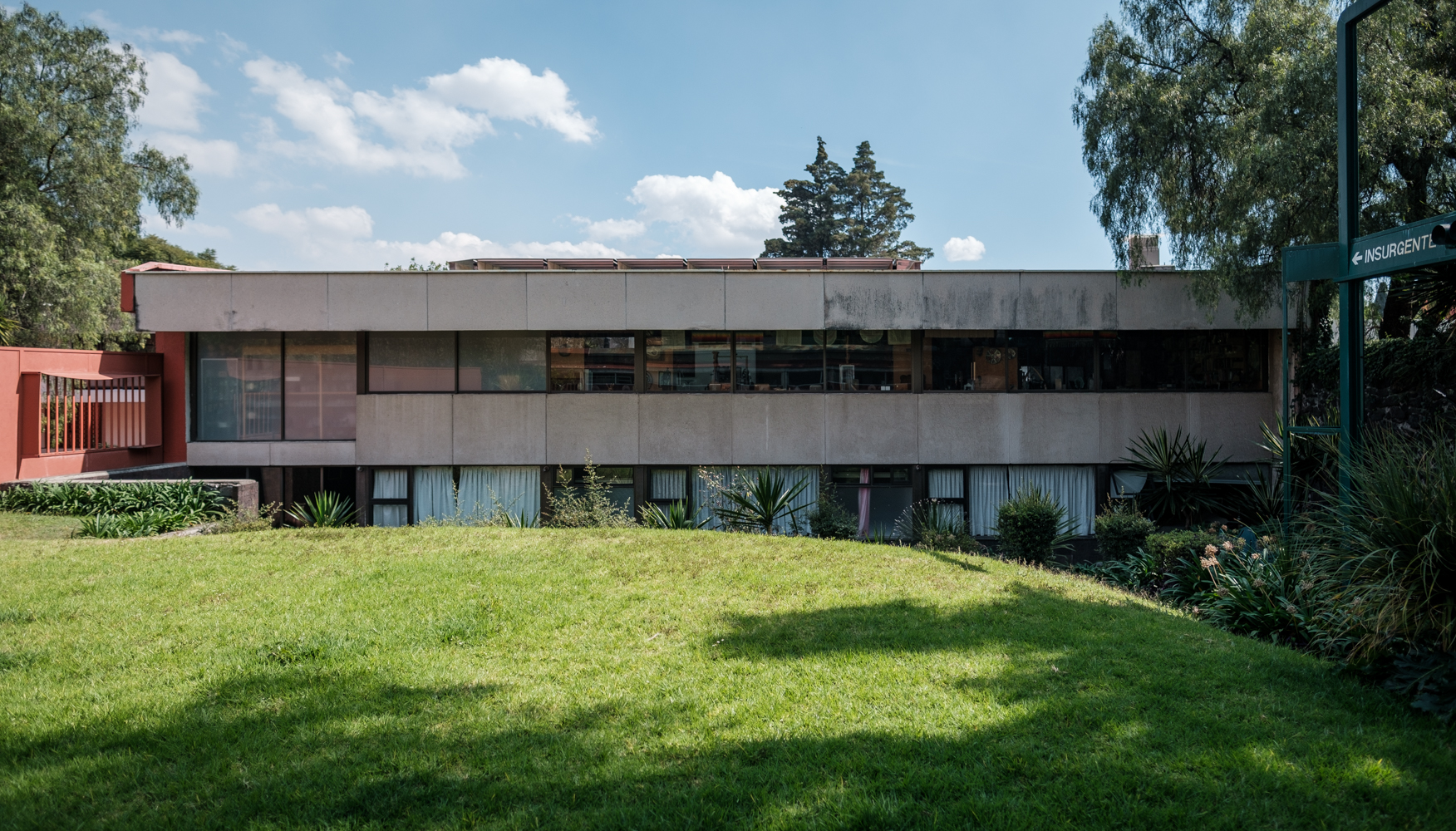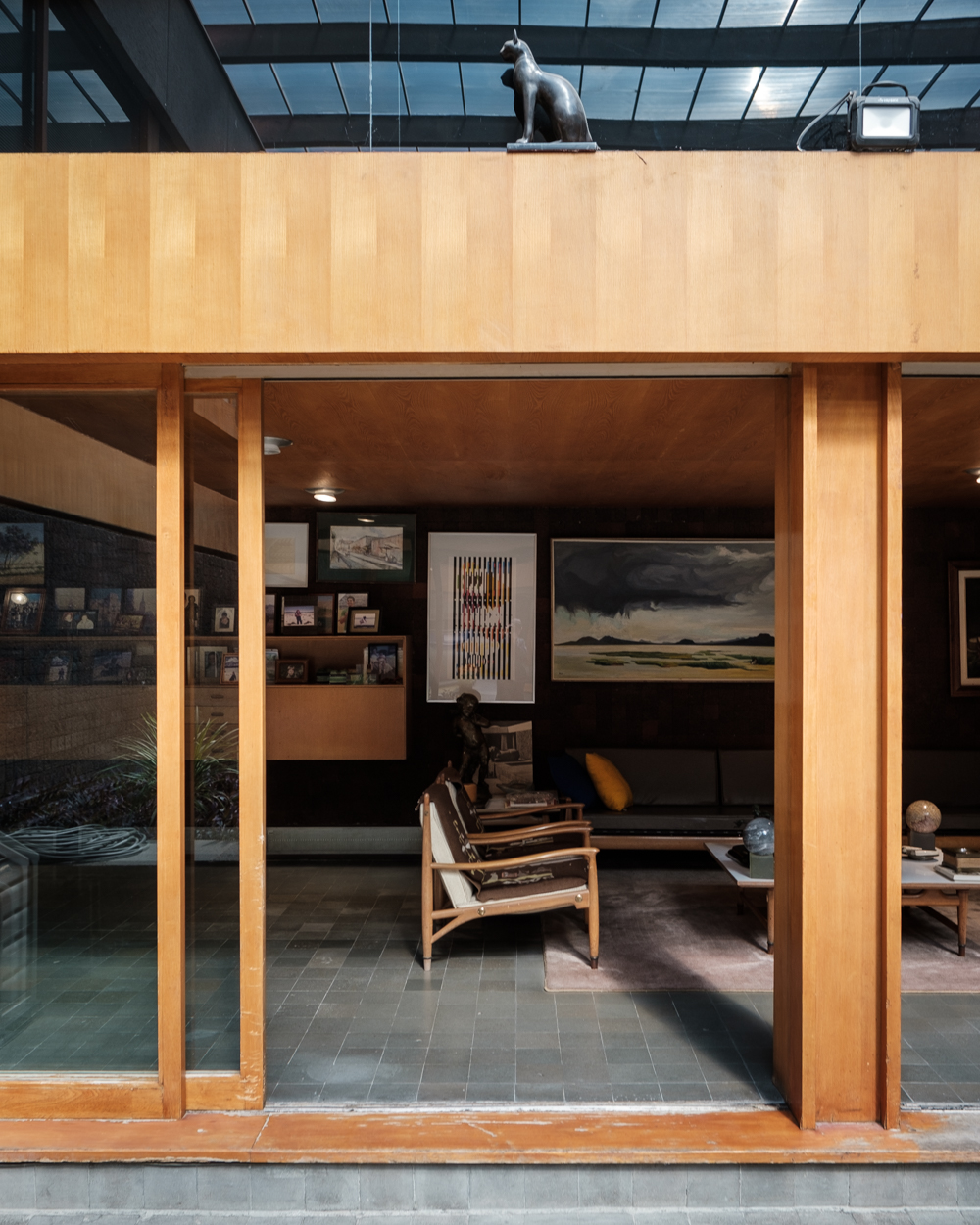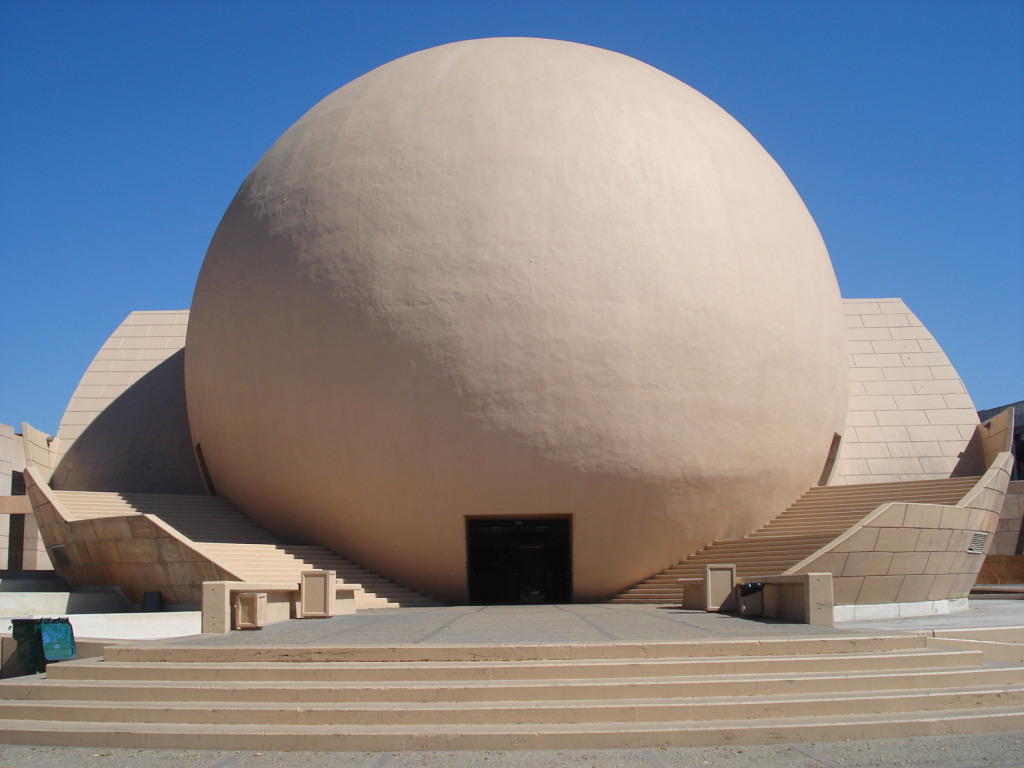Pedro Ramírez Vázquez / Casa
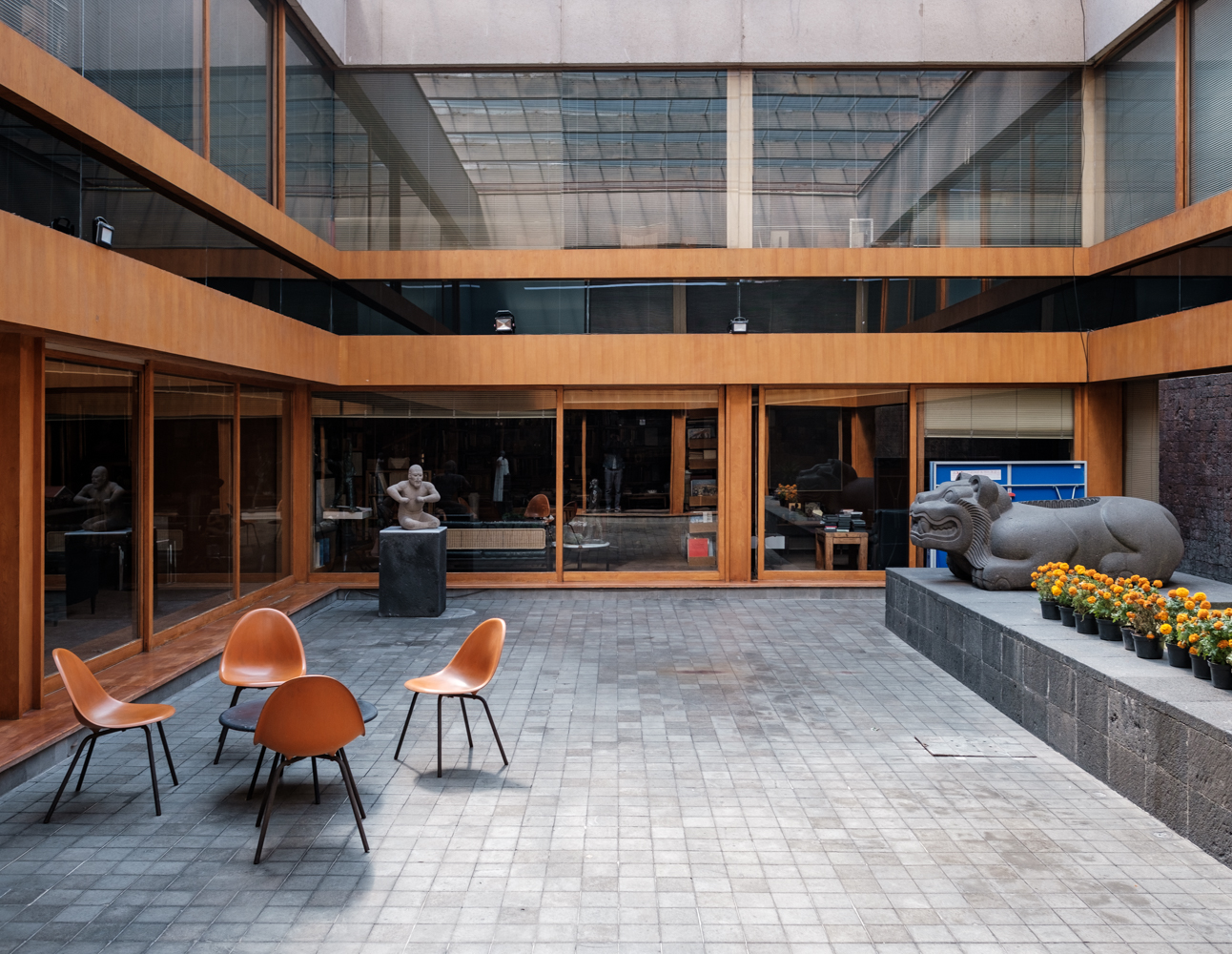 Casa en Granizo, Jardines del Pedregal (1960). This is the home Pedro Ramírez Vázquez (1919-2013) designed for himself.
Casa en Granizo, Jardines del Pedregal (1960). This is the home Pedro Ramírez Vázquez (1919-2013) designed for himself.
 Born in Mexico City, Ramírez Vázquez received his architecture degree from UNAM in 1943. He is responsible for some of the country's most important modern architecture icons and also served as president of the organizing committee of the 1968 Olympics in Mexico.
Born in Mexico City, Ramírez Vázquez received his architecture degree from UNAM in 1943. He is responsible for some of the country's most important modern architecture icons and also served as president of the organizing committee of the 1968 Olympics in Mexico.
The residence is located behind the Ramírez Vázquez architectural offices and archives. It is also next door to the Pedregal House by Luis Barragan. Initially we were chased away by a security guard when we asked if we could see the house. Fortunately we were able to get inside.
 The structure was originally one story with an open roof.
The structure was originally one story with an open roof.
Source: Una Vida Moderna
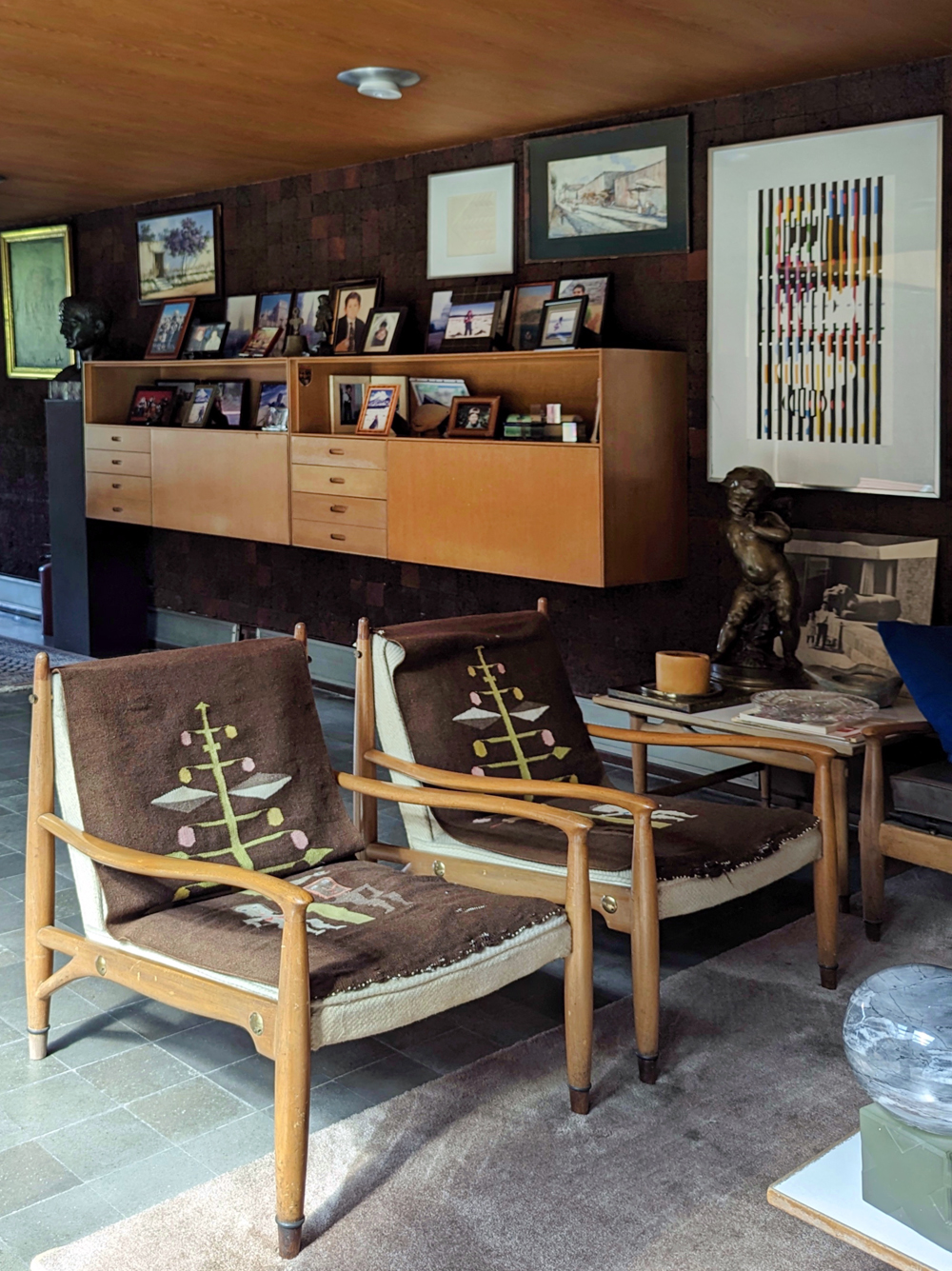 There is a lot of Frank Kyle furniture in the house.
There is a lot of Frank Kyle furniture in the house.
 Ramírez Vázquez designed the metal table. The marble table appears to be another piece by Frank Kyle.
Ramírez Vázquez designed the metal table. The marble table appears to be another piece by Frank Kyle.
 A glimpse into the lower level of his massive library.
A glimpse into the lower level of his massive library.
 Here he is, in what looks like his library.
Here he is, in what looks like his library.
Source: Life Magazine Ramírez Vázquez was politically connected and received many government commissions. In addition to many educational buildings, he was responsible for the Mexico pavilions at the World’s Fairs in Brussels (1958), Seattle (1962) and New York (1964) (above).
Ramírez Vázquez was politically connected and received many government commissions. In addition to many educational buildings, he was responsible for the Mexico pavilions at the World’s Fairs in Brussels (1958), Seattle (1962) and New York (1964) (above).
The National Museum of Anthropology (1964) is his most well known project. It's also pretty much required to take a photo in front of the fountain.
 Speaking of, he has an identical column in his front yard.
Speaking of, he has an identical column in his front yard.
 An Aztec calendar from the museum as well.
An Aztec calendar from the museum as well.
 There is also a traffic signal he designed in the yard.
There is also a traffic signal he designed in the yard.
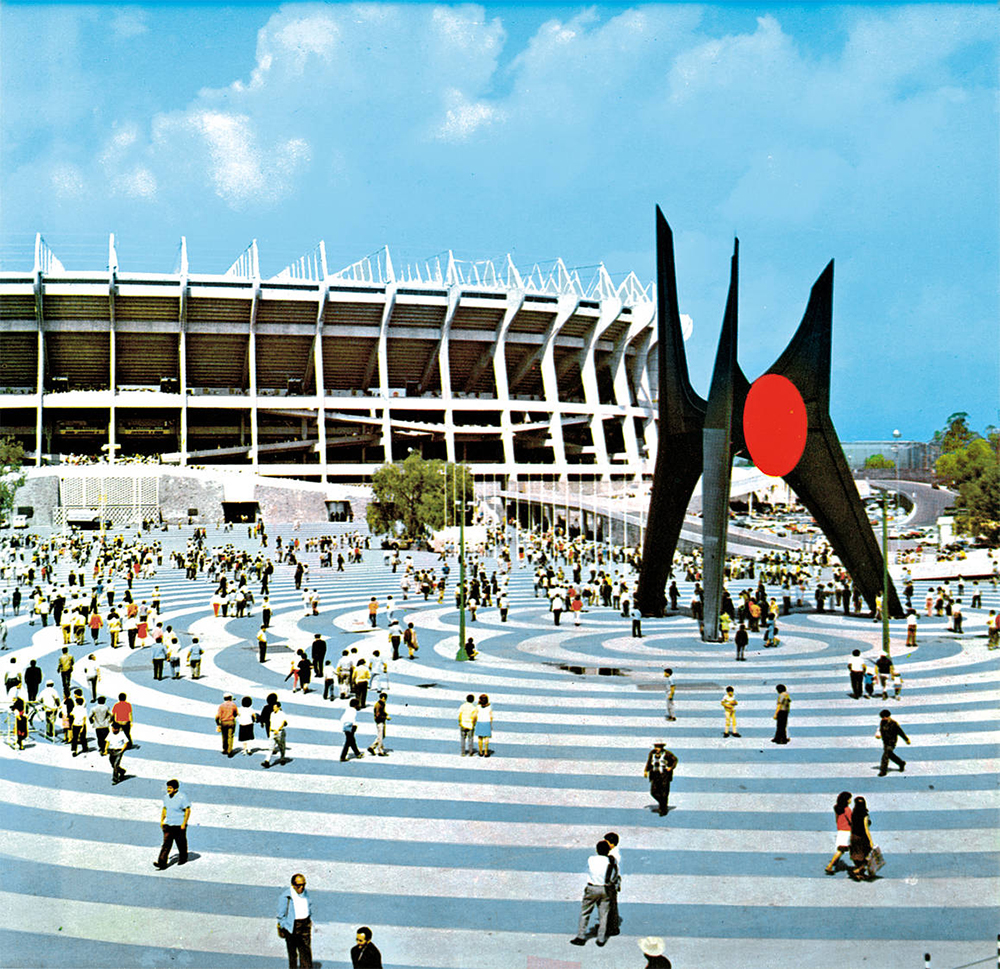 Estadio Azteca (1966) for the 1968 Olympics
Estadio Azteca (1966) for the 1968 Olympics
 I paid a visit in June. The graphics are long gone, but the Alexander Calder is still standing tall, as is the stadium.
I paid a visit in June. The graphics are long gone, but the Alexander Calder is still standing tall, as is the stadium.
 There is some controversy around who should receive credit for the iconic 1968 Mexico graphics. I was under the impression that it was Lance Wyman, an American designer. However, it gets complicated. Ramírez Vázquez hired Wyman and said he has documentation proving that he created it and Wyman simply executed the idea.
There is some controversy around who should receive credit for the iconic 1968 Mexico graphics. I was under the impression that it was Lance Wyman, an American designer. However, it gets complicated. Ramírez Vázquez hired Wyman and said he has documentation proving that he created it and Wyman simply executed the idea.
 What we do know is that the multi-line font comes from patterns developed by the Wixárika (Huichol) people and used in their fiber paintings.
What we do know is that the multi-line font comes from patterns developed by the Wixárika (Huichol) people and used in their fiber paintings.Source: Wiki Commons
